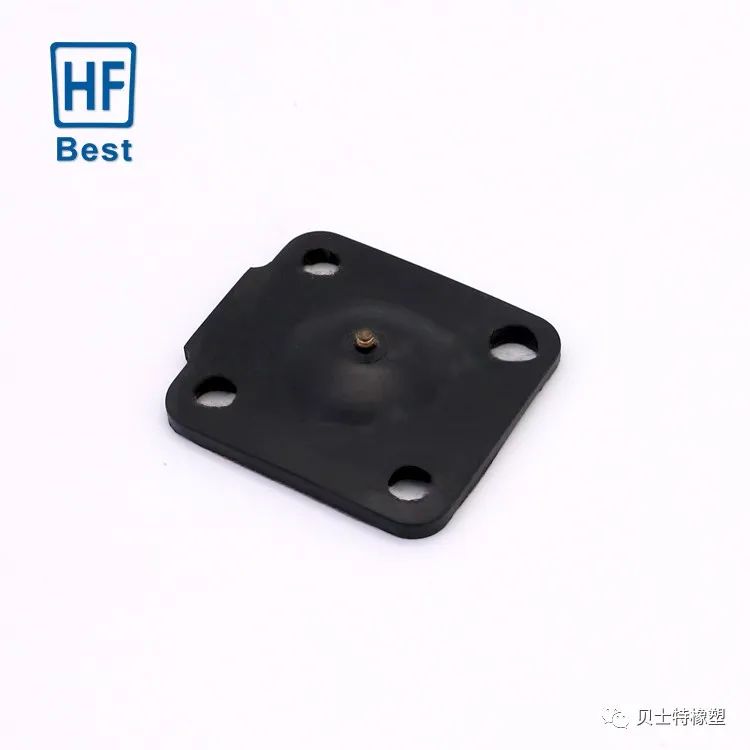News
- Industry news
Industry news
How much do you know about the ubiquitous rubber products in life?

Q1
What are rubber products?
Rubber product refers to the production of various rubber products from natural and synthetic rubber as raw materials, including rubber products reproduced from waste rubber. The output of synthetic rubber has greatly exceeded that of natural rubber, among which the largest output is styrene butadiene rubber.
Q2
What are the classifications of rubber?
Rubber is divided into natural rubber and synthetic rubber
Natural rubber
The main source of three-leaf rubber tree, when the rubber tree skin is cut, will flow out of milky SAP, called latex, latex by condensation, washing, forming, drying natural rubber.
Synthetic rubber
It is made by synthetic method. Different kinds of rubber can be synthesized from different raw materials (monomers). In 1900-1910 chemist C.D. Harris determined that natural rubber was a polymer of isoprene, opening the way to synthetic rubber. In 1910, Russian chemist SV Lebedev used metal sodium as initiator to polymerize 1, 3-butadiene into sodium butadiene rubber. After that, many new synthetic rubber varieties emerged successively, such as butadiene rubber, neoprene rubber, styrene-butadiene rubber and so on. The output of synthetic rubber has greatly exceeded that of natural rubber, among which the output of styrene butadiene rubber is large.
Q3
What are the types of rubber products?
1. General purpose rubber
Refers to a part or all of the rubber used to replace natural rubber, such as styrene butadiene rubber, butadiene rubber, isoprene rubber, mainly used for manufacturing tires and general industrial rubber products. General rubber is the main variety of synthetic rubber in great demand.
2, styrene butadiene rubber
Styrene butadiene rubber is made by the copolymerization of butadiene and styrene, is a large output of general synthetic rubber, latex styrene butadiene rubber, polystyrene butadiene rubber and thermoplastic rubber.
3, butyl rubber
Butadiene is prepared by solution polymerization, butadiene rubber has special excellent cold resistance, wear resistance and elasticity, but also has good aging resistance. Butadiene rubber is mostly used in the production of tires, and a small part is used in the manufacture of cold products, buffer materials and adhesive tape, rubber shoes, etc. The disadvantage of butadiene rubber is poor tear resistance and poor wet slip resistance.
4. Isoprene rubber
Isoprene rubber is short for polyisoprene rubber, which is produced by solution polymerization. Isoprene rubber, like natural rubber, has good elasticity and wear resistance, excellent heat resistance and good chemical stability. The strength of raw isoprene rubber (before processing) is significantly lower than that of natural rubber, but the quality uniformity and processing performance of isoprene rubber are better than that of natural rubber. Isoprene rubber can replace natural rubber to make heavy duty tires and off-road tires and can also be used to produce various rubber products.
5, ethylene propylene rubber
Ethylene-propylene rubber is synthesized with ethylene and propylene as the main raw materials. It has outstanding aging resistance, electrical insulation and ozone resistance. Ethylene-propylene rubber can be a large number of oil filled and filled carbon black, low product price, ethylene-propylene rubber chemical stability, wear resistance, elasticity, oil resistance and styrene butadiene rubber close. Ethylene-propylene rubber is widely used as tire side, rubber strip and inner tube as well as auto parts, but also as wire, cable sheath and high voltage, ultra high voltage insulation material. Also can manufacture rubber shoes, sanitary articles and other light products.
6, neoprene rubber
It is chloroprene as the main raw material, by homopolymerization or a small number of other monomer copolymerization. Such as high tensile strength, heat resistance, light resistance, excellent aging resistance, oil resistance is better than natural rubber, styrene butadiene rubber, butadiene rubber. It has strong fire resistance and excellent flame resistance, high chemical stability and good water resistance. The disadvantages of neoprene rubber are electrical insulation performance, cold resistance is poor, raw rubber is not stable in storage. Neoprene has a wide range of uses, such as making transport belts and belts, wrapping material for wires and cables, making oil resistant hose, gaskets and chemical resistant equipment linings.

Q4
What are the characteristics of rubber products?
1. Rubber products molding, after large pressure, because of the cohesion of the elastomer can not be eliminated, in forming mold, often produce extremely unstable shrinkage (shrinkage of rubber, because of the difference in different types of rubber), after a period of time, to slow and stable. Therefore, when a rubber product design at the beginning, regardless of formula or mold, need to carefully calculate with, if not, it is easy to produce product size instability, resulting in low quality products.
2. Rubber is a thermosetting elastomer, while plastic is a thermosetting elastomer. Rubber due to different types of sulfide, the temperature range of its molding and curing, there is a considerable gap, and even due to climate change, indoor temperature and humidity affected. Therefore, the production conditions of rubber products need to be adjusted moderately at any time, if not, the quality of products may be different.
3. Rubber products are made of rubber raw materials by the mixer made of rubber as raw materials, in the process of rubber mixing according to the characteristics of the required rubber products and design formula, and set the required product hardness. The product is molded by rubber flat vulcanizing machine. After the product molding, the final fly-edge treatment, the product surface treatment is smooth without burrs.
4. Rubber products aging test belongs to the category of aging test, rubber aging refers to rubber and products in the process of processing, storage and use, due to the comprehensive effect of internal and external factors caused by the change of performance structure, and then lose the use value of the phenomenon. Performance for cracking, sticky, hardening, softening, powdery, discoloration, mildew and so on.
Q5
What are the common rubber products in life?
1. Rubber gloves are a kind of gloves made of rubber flakes or films. According to the rubber raw material or manufacturing process divided latex gloves and molded gloves. Acid and alkali resistant gloves should be able to be used at 45℃ in sulfuric acid (density 1.32) or caustic soda solution (density 1.19).
2, latex pillow is made of latex pillow, has air permeability and moisture absorption, high resilience, but does not have the characteristics of memory.
3, latex silk is rubber silk, belongs to natural rubber, from rubber tree SAP, they are extremely precious, because each rubber tree can only produce 30 milliliters of latex juice every day. A latex product takes at least a day to a day and a half to complete, which is a very time-consuming and material precious product.
4, latex toys, such as latex jump horse.
5. Rain shoes, warm water bags and elastic bands used in daily life.
6. Surgeon's gloves, blood transfusion tubes, condoms used in the medical and health industry.
7. All kinds of tires used in transportation






